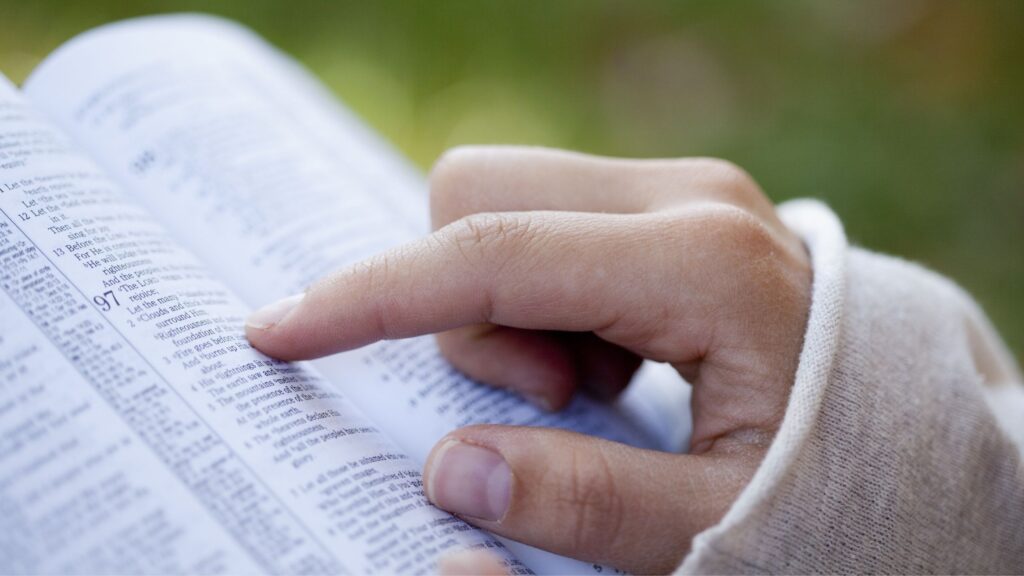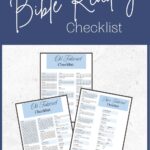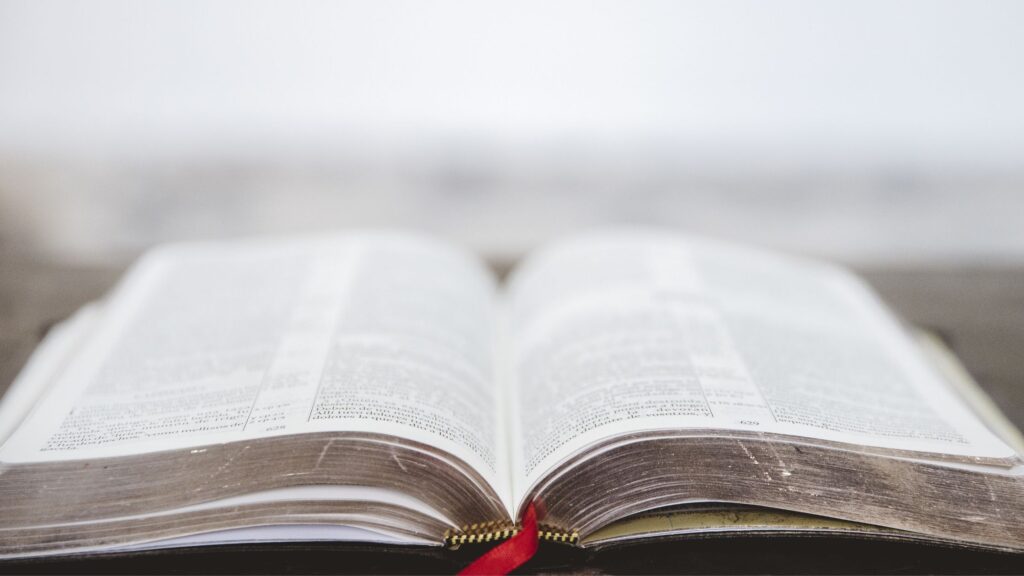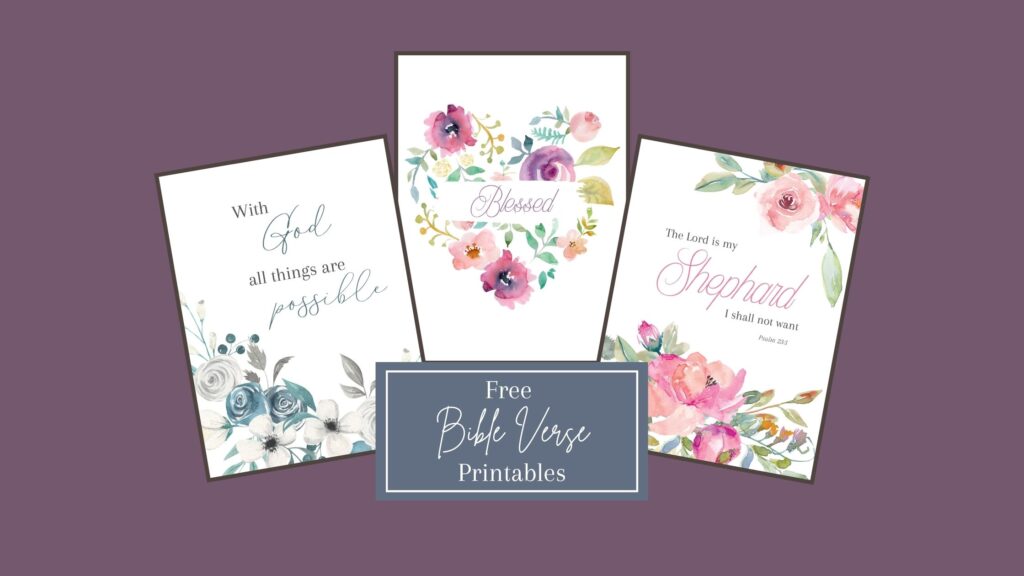As a new Christian, you have probably opened up your Bible to start reading it with a bit of anxiety and overwhelm. You’ve probably thought:
- Where should a beginner start reading the Bible?
- What book of the Bible should I study first?
- Should I use a Bible Reading Checklist to keep track of what I’ve read?
While there is no one right way to start reading it, there are some books that you might want to start with to give you a better foundation for understanding some of the others ones.
Below, I’ll share some tips for getting started with reading the Bible as a beginner as well as a free printable Bible Reading Checklist to track your readings.
This post may contain affiliate links, please see our full disclosure for more information.
Bible Reading Checklist
If you plan to read through the entire Bible, you will definitely need a Bible reading checklist or Bible reading tracker to keep track of what you’ve already read and what you haven’t.
These printable Bible reading checklists are broken down into both Old and New Testament – which is also great for learning the Books of the Bible. Just print them out and place them in your Bible study notebook and mark off what you’ve read!
Download your free Bible Reading Checklist pdf below.
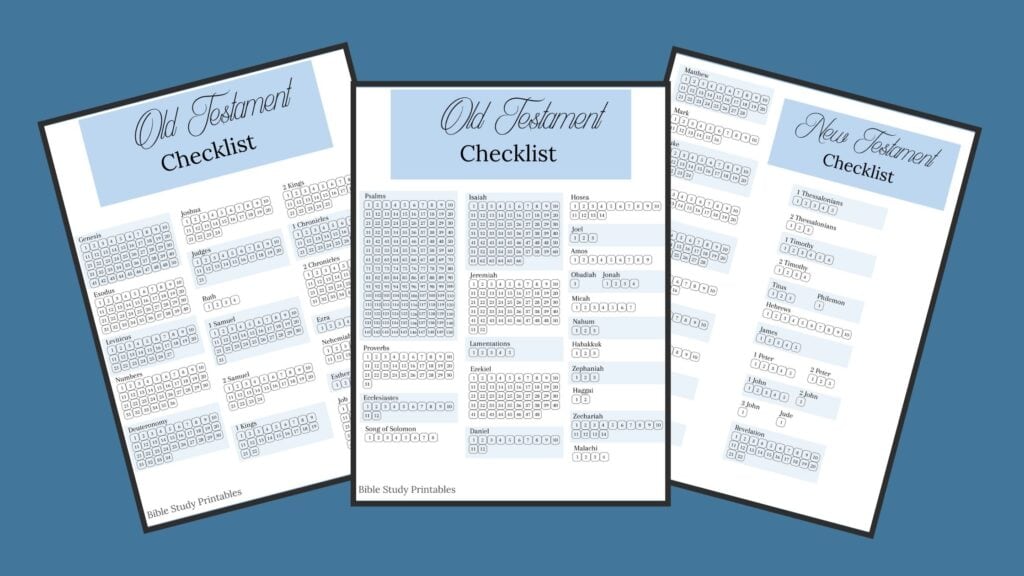
Bible Reading Checklist App
While I’m a paper and pencil kind of girl, you might prefer to organize things on your mobile phone. Fortunately, there are a couple of really great Bible reading checklists apps for both Iphone and Android devices.
Simply go to your platform’s app store and search for:
- Bible Reading Chart (Android)
- 365 Bible Reading Checklist (Android)
- Daily Soul Bread (Iphone)
- Bible in One Year (Iphone)
Bible Reading for Beginners
The Bible is such an amazing book to read. Not only does it tell us about the life of Jesus, it is filled with history, poetry, drama, and so much more! But how do you go about reading it for the first time?
You could, of course, just open to the first book (Genesis) and begin reading it in order from there (like you would any other book). The problem is that once you get past the story of Creation and Adam & Eve, you can easily get bored (or lost) as it goes into some pretty dry reading about lineage and other stuff that is somewhat hard to follow. And the truth is that the physical order of the books in the Bible is not actually the order in which all the events happened.
Choose the Right Bible Translation
Most of us are familiar with the King James Version of the Bible which is kind of hard to understand because of the language used in it. It is filled with “thy” and “thine” and other words that seem more like old poetry than modern language. If you don’t understand the language, how can you understand the content?
Fortunately, there are a LOT of different translations which help to break down the content into a way that makes more sense to us today. Before you start reading the Bible, you’ll want to find the best translation for you so you can really understand what you are reading. You can compare several translations of the same verse to see which ones you understand the best.
Where to Start Reading the Bible as a Beginner
So, where exactly should you get started with? Unlike other books, I don’t recommend starting with the first book. Although Genesis does include the story of Creation, it gets really complicated shortly after and you can easily get lost and confused with all of it.
Also, by starting from the beginning, you are starting in the Old Testament. And let’s be honest, the OT is somewhat doom and gloom and can give you a false impression of what living in the light of Jesus is all about.
The New Testament, however, gives you a better understanding of the love of God what Salvation means for us.
If you are just getting started with reading the Bible for the first time, I’d recommend starting with these books:
- The Gospels – The best place to start reading the Bible as a beginner is in the Gospels. The Gospels include the books of Matthew, Mark, Luke, and John. They cover the life of Jesus from birth to the Resurrection. Starting here gives you the whole point of the Bible – which is that Jesus sent His son to die for us so that we may be forgiven of our sinful ways and enjoy an eternity in Heaven.
- Romans – For a new Christian trying to better understand the basics of the Christian faith, Romans is an excellent place to start. It cuts straight to the point and explains everything in an orderly manner. If you didn’t fully understand the significance of certain events in the gospel, Romans helps you understand it much better.
- Acts – The book of Acts helps you to understand the birth of the Christian movement. It shows us how the church should respond when living in a predominately pagan culture.
- Psalms – The book of Psalms is filled with encouragement and hope.
- Proverbs – The book of Proverbs is filled with short quotes that have powerful meaning. These make for excellent daily devotional readings to meditate on. Don’t sit down and read through the book of Proverbs in a single sitting. Instead, read one verse from it each day along with your regular reading plan.
Once you have finished reading these, you can then just continue through the rest of the books on the list in no particular order. I personally prefer to read through all of the New Testament before diving into the Old Testament.
Aside from reading through the entire Bible, book by book, you can also read through it using different topical reading plans. These will provide verses from all the books (jumping around) so you can simply mark the exact verse as you read them from the different plans.
And once you’ve read through the entire Bible, pick it up and start over again – and maybe in a different order or by focusing on particular stories!

